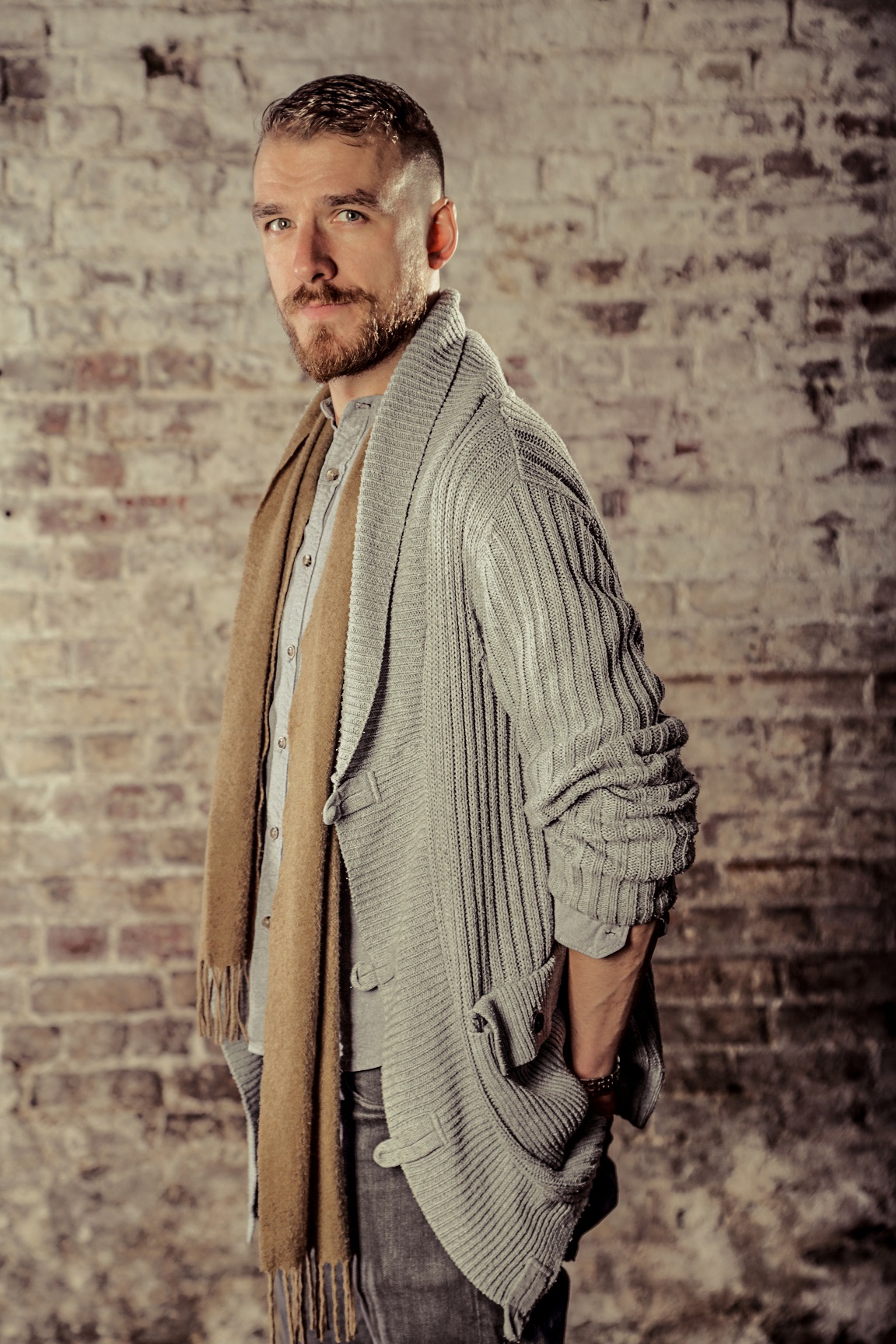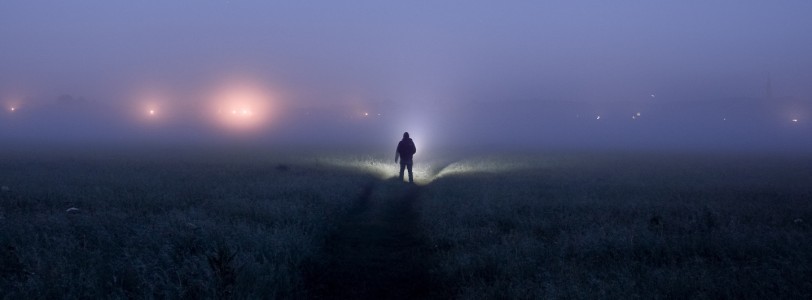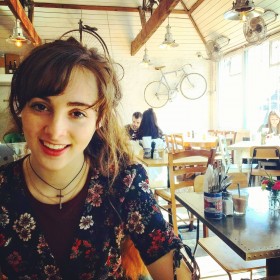Hi John! Could you first introduce yourself to the reader?
Hi there! I’m a writer from the west of Ireland, living in London since 2009. I write plays mostly, as well as some other stuff.
Describe your show FLIGHTS in 3 words.
Funny, tragic, angry.
What is the premise of FLIGHTS and what inspired this work?
There are three main characters: Barry, Cusack and Pa, and they get together every year to remember the death of their old schoolmate Liam. Liam’s been dead 17 years – as long as he was alive – and there’s the sense that the men haven’t moved on.
As we dig a little deeper we realise that part of what’s stopped them moving on was the 2008 recession and the collapse of the economy in Ireland. The play was inspired by the experiences friends had whilst growing up in the Celtic Tiger. There were high expectations and aspirations that were punctured by long term unemployment, emigration and high suicide rates after the economy collapsed. It’s an angry remembrance of all that we’ve survived, and a tribute to those that didn’t.
FLIGHTS is set in a small Irish community. Tell us more about your personal experience growing up in Ireland, and how this influenced the piece.
I grew up in a small working-class village on the outskirts of a fairly large town. Our upbringing was very gendered and very sports orientated, so boys and girls tended to play separately. We were then segregated by gender into different secondary schools. The result was a place that put a high value on conforming, on violence towards one another and a real disregard for mental health and self-care.
The main route to happiness was work and escape – to do well, we were told, we would have to leave for college or a job. There are no universities, there still is not a lot of employment. Young people die often – in car accidents, suicides, fights, illnesses. Growing up there, you know you won’t get to stay very long. I think the three main characters of FLIGHTS are clearly suffering the results of all that: a mixture of being frozen in time by a crippled economy as well as being shackled by survivor’s guilt.
Explain more about how the themes brotherhood, bereavement and austerity all combine in this show.
Work features heavily in the play, especially manual labour. Employment is the difference between survival and destitution but it dominates the lives of the characters. This is what austerity did to us – it moved the goalposts from thinking “if you work, you can be happy” to “if you don’t work, the system will kill you.”
Cusack is terrified of how little his head is above water; Barry knows he is in a relationship that makes him unhappy because it’s the only way he can pay rent; Pa is homeless and without a strong intervention is headed towards destitution. Amongst all this, they try to remember how they used to be before their friend and their hopes all died.
FLIGHTS is saying that austerity is a kind of death – from 2008 onwards we will be forever mourning the people we could have been if the citizens of Ireland hadn’t been coerced into paying the debts of international banks. We barely survived that trauma – and like the lads in the play, we’ll never forget it.
 Have any artists inspired or influenced your work?
Have any artists inspired or influenced your work?
Loads. Eugene O’Brien’s PURE MULE was the TV show that let me know home towns like mine could make for good drama. Marina Carr’s work gives me the confidence to lean into the way I hear character voices. and make them a pillar of the plays themselves. Older classics like Tom Murphy and Brian Friel give me something to aim towards, knowing that it’s possible to dive deep into things you don’t yet understand and come out with a shape to put on things.
I’m also really driven by my contemporaries – writers like Margaret Perry, James Fritz and actors like Aaron Monaghan and Nicola Coughlan – people whose work has its own force of gravity that when it pulls on mine, makes me broaden out my work to try and make it take more in.
Did you face any particular challenges during the project?
The big challenge is always the time it takes to get a project away. Left on your own it might take a year to really finalise a script. Then it’s ready to be shopped around. Another year before it gets read and maybe taken up. Then a year of development; the project doesn’t work out, you’re shopping it around again.
You finally get it going for sure and five years have passed since you first started writing – the world has changed, the way these characters will be read has changed. That’s a lot of rewriting just to patch up things that weren’t problems initially, just have been knocked out of shape as time goes past. You’re constantly battling erosion that’s caused by other aspects of the industry. Plays should be written slowly and produced quickly, but like a lot of things, we’ve got it all backwards.
Have you seen any changes in the arts industry recently? If so, what are these changes?
I think there are more artists now with more things to say, but even fewer opportunities to get work on stage. I think nepotism and insiderism is still a huge problem, so artists are still having to waste their time networking instead of working.
However, there are more opportunities to crowdfund, to DIY than ever before. It sometimes means the work can’t be as deep or as profound – wealthy people can still look like geniuses and the rest of us can look slapdash because they can buy the time to let things bed in and look slick. But they can’t buy our stories, so at least there’s that.
What advice would you give to young people who wish to pursue a similar career?
Write as much as you can and as often as you can. Don’t wait for the perfect circumstances to write, or the perfect idea. Take inspiration from prolific writers rather than perfectionists. It’s always hard work, no matter how easy you have it, so don’t wait. Plan your stories, research your worlds, know your characters, and write.
If you don’t have someone willing to pay you a living wage to write, it’s good to look for work that pays enough to help you pay the bills and where your colleagues and managers are kind. It’s easier for writers to write around a 40-hour week than it is for actors or directors, so we don’t need to get locked into the temping/service-industry cycle which can be so draining. I work in theatre book publishing; loads of my colleagues are also creators. It’s a supportive environment.
I don’t know any serious artist who thinks that the mark of a serious artist is making money. If you are able to pay the bills in a way other than writing, it allows you to focus on creating the projects you want to create, instead of giving up because you can’t afford to keep going.
Lots of good writers I know work within the theatre industry, at box office or in admin – it helps you understand the industry you’re pitching into. Even though it’s full of good people the industry in the UK is still structured along its old bourgeois models. I feel like it’s set up to exclude, gatekeep, and privilege stories that reflect its gatekeeper. The closer you can get to being an insider, the easier it will be to understand the nature of the beast you're dealing with.
How can people find out more about yourself and FLIGHTS?
Check out One Duck’s homepage for dates and links to tickets. Come see it and talk to us afterwards. I’m on Twitter @johneodonovan and contactable through my agent’s page and the script of my previous play can be bought here.
FLIGHTS will be staged at Omnibus Theatre from 11 – 29 Feb. www.omnibus-clapham.org.









0 Comments